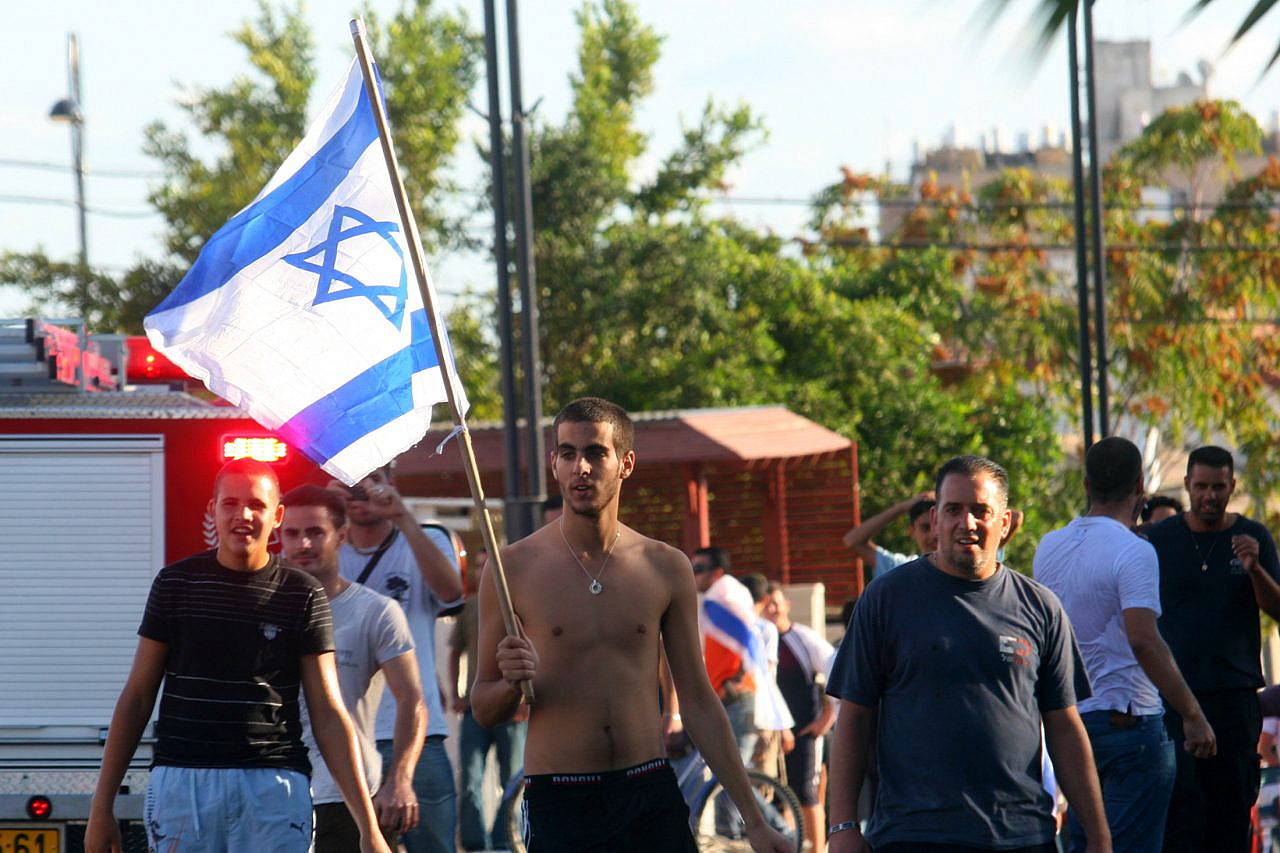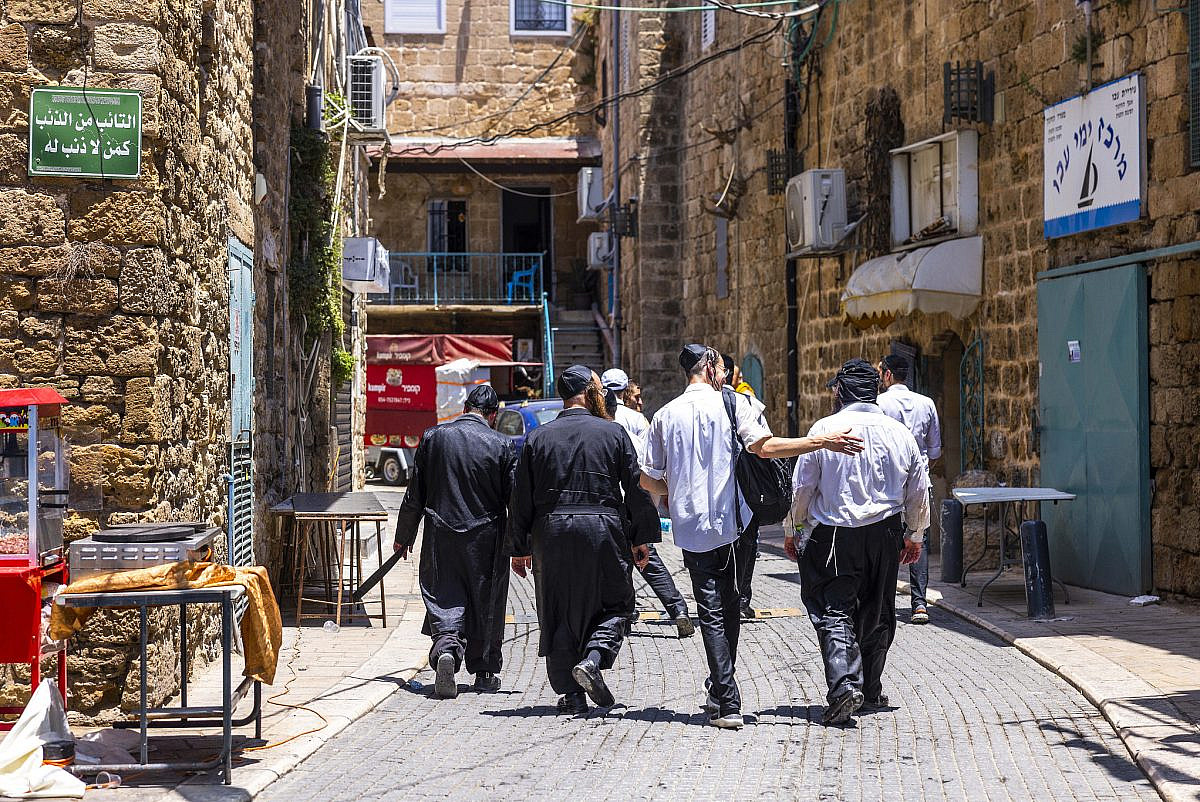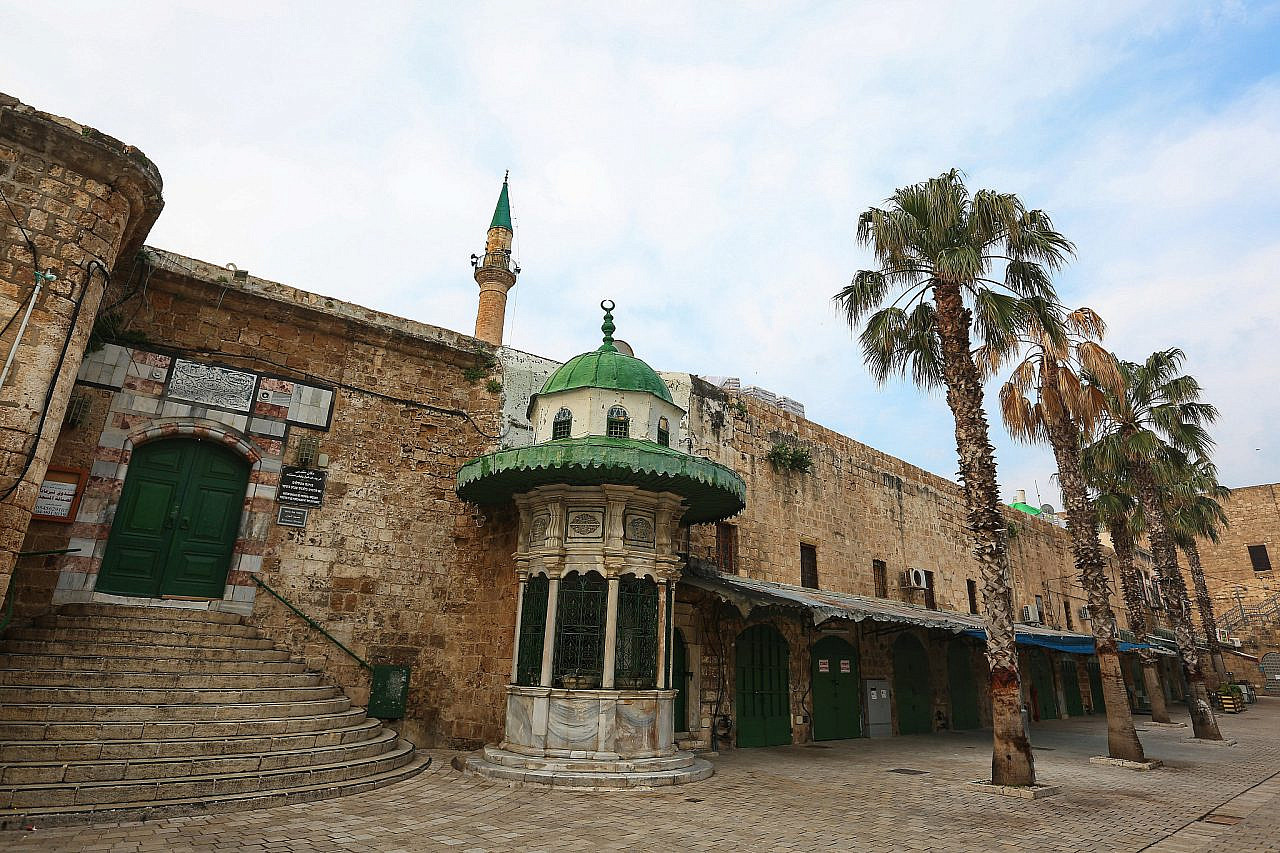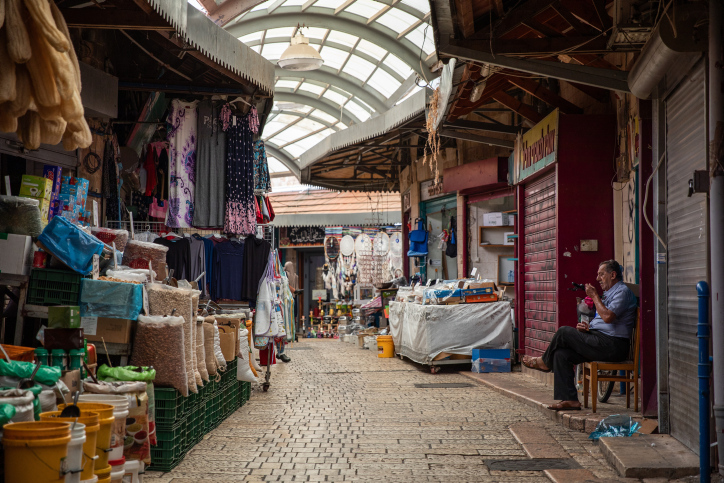“Is the face of Akko changing? Large migration of young religious Zionists,” blared one recent headline on Israel’s Walla! news site. “30,000 new residents,” declared another, referring to a new neighborhood to be built in Akka’s mostly Jewish eastern half.
It is no coincidence that Akka — known in Hebrew as Akko and English as Acre — is currently a primary target of efforts by religious Zionists to Judaize all of Israel-Palestine. During the violence of May 2021, Akka was one of several “mixed cities” (Israeli parlance for historically Palestinian cities whose populations were mostly, but not entirely, expelled in 1948) that experienced an unprecedented eruption of clashes between its Jewish and Arab residents.
In Akka, 84-year-old Aby Har-Even, an Israeli Jew, died from the injuries he sustained after an arson attack on the hotel in which he was staying. Although both Jews and Arabs partook in violent demonstrations, looting, and attacks during the unrest, Jewish citizens tended to have the protection — and sometimes active cooperation — of Israeli forces. After the violence settled, the Shin Bet carried out a mass arrest campaign disproportionately targeting young Palestinian citizens.
A major factor in the violence that took place in May 2021 was Akka’s “Garin Torani” (“Torah Nucleus”), a religious-Zionist community that first settled in Akka around 25 years ago with the aim of Judaizing the city. Their presence and actions in Akka, as well that of fellow Torah Nuclei in other “mixed cities” like Lydd, led to Itamar Ben Gvir — who shares their ideological agenda — surging in the polls. He campaigned, in part, on the “neglect of the police” during the violence of May 2021; doing so helped transform him into one of the most powerful figures in the current far-right coalition, landing him the newly-created National Security Ministry in the process.
So is religious Zionism really changing the face of Akka, where the proportion of Arab citizens is the highest of all the “mixed cities” (excluding Jerusalem)? Or is it merely a religious-Zionist fantasy with little basis in reality?
Tensions and tourism
Ahmed Odeh, a social activist and former member of the Akka city council, says that religious Zionism became a presence in the city when the current mayor, Shimon Lankri, first entered office in 2003. “From the beginning, he spoke about ‘Judaizing Acre,’ encouraged [the religious Zionists], and built the biggest yeshiva in the north of the country,” Odeh explained.
A flare-up between these far-right religious Zionists and the Palestinian residents of Akka was inevitable: in 2008, on Yom Kippur, severe clashes broke out between Jews and Arabs in the city. Tensions subsequently continued to rise and spilled over into significant violence during May 2021. “A large part of these people came from the settlements, some of them evacuated from Gaza, and they have a representative in the city council who identifies with religious Zionism,” Odeh continued.

According to Odeh, religious Zionists have recently become increasingly active in Akka. “They are trying to re-Judaize the ‘Mandatory Akka’ area [north of the Old City], Ben Ami Street,” he said. This part of the city was mostly Jewish until about a decade ago, when many Jews left, and Palestinians who wanted to live close to their families in Old Akka moved in. Now, according to Odeh, religious Zionists are attempting to push out Palestinians by renting apartments to groups of young people affiliated with their movement.
This renewed effort to Judaize Akka is coming right as the city is experiencing a surge in tourism, even being named Israel’s “Best Host City” this year by Booking.com.
Odeh believes the influx of religious Zionists could endanger the tourism boom. “There is a strange contradiction: on the one hand, they invest in Akka because it is a tourist city, recognized by UNESCO, and on the other hand, religious Jews want to shut down the city on Shabbat,” he explained. He warned that Akka’s tourism industry could follow the trajectory of Tiberias, which also experienced a wave of religious Jewish immigration: “The city was a tourism center, but after it started closing down on Fridays and Saturdays, it looked like a ghost town. Something similar is happening in Akka. In the new city [the neighborhoods in the north and east], today they close everything [on Fridays and Saturdays]. Only Old Akka remains open.”
But damage to the tourism industry is not the only danger for Palestinians in Akka. “We have been warning for years that [religious Zionists] are bringing a religious-Jewish society with a nationalist agenda,” Odeh said. “Arab citizens continue to be marginalized in all areas of life. The result is a poor Arab society and an extremist Jewish society, which will lead to further extremism, escalation, and clashes, not reconciliation.”
According to Odeh, the events of May 2021, as well as other clashes in the city, are in part caused by economic issues. “The city’s leadership does not have a plan in which both Arabs and Jews will benefit,” he explained. “Neither side wants more clashes. Arab citizens know the extent of the damage they suffered, of having their children imprisoned, and of the [unofficial boycott by Israeli Jews following May 2021]. So do Jewish citizens. But no one can expect the Arab citizens to put up with the discrimination they face, and with the provocations by the [Jewish] extremists and their obvious intent to Judaize Akka and impose a Jewish character on the city.”
‘They come to Akka with an agenda’
Hanadi Baya’a, another Palestinian social activist, says that she does not fear the efforts to make Akka a religious Jewish city. “The stores in new Akka have been closed on Friday evenings and Saturdays for years — this is not new, and we have no objection to it,” she explained.
The problem, in her view, is the Garin Torani: “They come to Akka with an agenda, and want to live where Arabs live.” According to Baya’a, the Garin Torani has the Old City in its sights. “Most of the houses in Al-Muallaq, one of the oldest neighborhoods in Akka, are empty and desolate. People associated with the Garin Torani and other Jewish organizations bought them.”
Baya’a says she is “angry” at Arabs who sell their houses in the Old City. “But I can’t always blame them, because the restrictions here are unbearable. Arabs can’t buy these houses because the banks don’t give mortgages to buy houses in Old Akka. Only those who already have money can buy these houses,” she said, noting that Palestinians typically lack the resources needed to make such investments.
Baya’a also worries about a rise in violence in Akka. “Two years ago, it was rare to see someone walking around Akka with a gun,” she said. “Today, when I walk with my children in our neighborhood in the city center, or near the kindergarten, I see people walking around with weapons. This does not give my children a sense of security.
“We’re following [in the footsteps of] Lydd,” Baya’a continued. “The state and many organizations support these figures and facilitate their move to Akka. It is clear that there are people who want to bring conflict between Jews and Arabs that can ignite at any moment.”
Baya’a sees a pattern in the methods religious Zionists use to Judaize Akka: they look for “weak and crowded places, like the Wolfson neighborhood, for example, buy houses there, scare the Arab citizens, and interfere in everything. It is no coincidence that the events of May 2021 were particularly violent there. The religious Zionists even won a tender to run a program for Arab youth. It’s funny, but it’s painful.”
A strategic ‘exaggeration’
Odeh, the former city councilor, believes that despite the concerted efforts of the state and the religious Zionist community, Akka remains a city with a significant Arab presence — which seems only to be growing. According to him, dozens, perhaps hundreds, of young Arab couples have left their villages in the Galilee for high-rise buildings in the city’s newer neighborhoods. “In the official statistics, the proportion of Arabs in Akka varies between 30 and 32 percent, but I think it may stand at around 40 percent,” he said, explaining that many of these young Palestinians are still listed as residents of their home villages.
These couples, he said, are moving to Akka because of the housing crisis in the villages, and because Akka has a train station that makes Haifa and cities in the center of the country more accessible. “Since 2000, Akka’s Jews have been talking about the deepening of the city’s Jewish character,” Odeh said. “But in reality, the reverse has happened: while the percentage of Arabs [in Akka] was 27 in 2000, today it is close to 40.”
Ashraf Amer, a social activist in Akka, describes talk of Akka being overwhelmed by religious Zionism as a strategic “exaggeration.” “The goal is to entice [more religious Zionists] to come to Akka,” he said.
The attempt to change the demographic balance in the city, in Amer’s view, extends back to the 1970s. “They squeezed the Arabs out in every realm: services, schools, security, cleaning, everything. They built a new neighborhood in the village of Jadeidi with the aim of moving Akka’s Arabs there. I can’t say that the attempts were not successful in certain respects. The population of Old Akka fell in the last 20 years from 12,000 to 3,500 today. Some places have become almost desolate. Israeli institutions bought houses, and forced the residents of other houses to leave, under the pretext that their homes were about to collapse.”
But, like Odeh, Amer believes that the general balance of the population hasn’t changed. “Those who left the Old City moved to new neighborhoods, not to mention the young people from the villages nearby who moved to Akka. In other words, despite attempts at demographic change, the Arab presence remains strong. Even though the religious Zionists are increasingly active, as of now you can’t say that Akka has become like Jerusalem or Lydd.”
Most read on +972
“Any group or person who comes to Akka is welcome, provided that they preserve the peace of the city and the shared existence,” Odeh concluded. “The nationalistic marketing of Akka is harmful, and it hurts the city. Akka should be marketed as a historical, Mediterranean city, with an abundance of archeological richness. Marketing Akka as a Jewish city is a pipe dream that will never come true, and will cause disappointment for Jews. The idea of [the city having a] ‘Jewish character’ harms Jews too, because Akka will remain a joint Arab-Jewish city and a tourist city. What has happened in the last 20 years is proof of that.”
A version of this article was first published in Hebrew on Local Call. Read it here.








